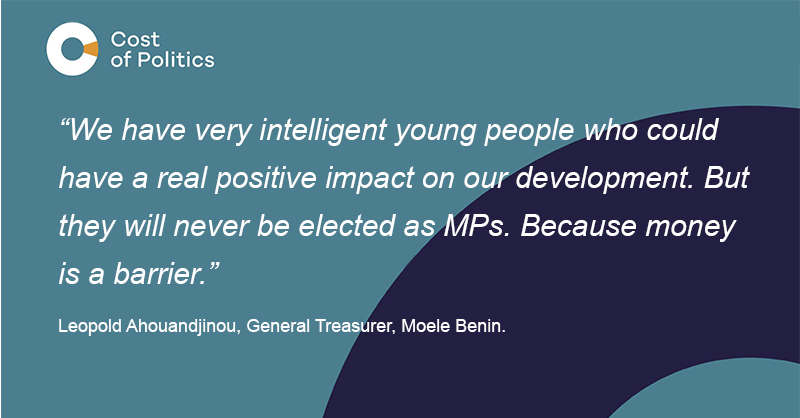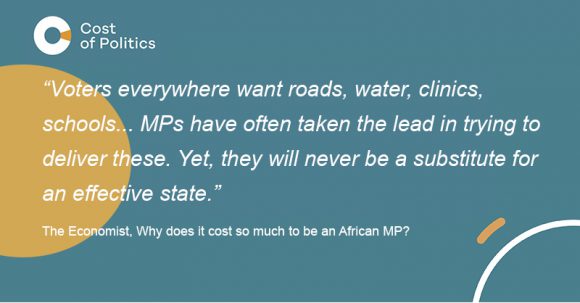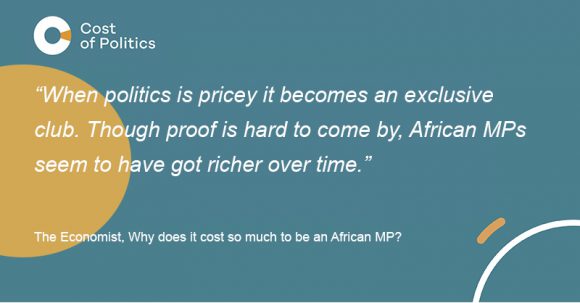
NIMD has teamed up with Westminster Foundation for Democracy (WFD) to launch a new website on the cost of participating in politics in different countries around the world.
What is the cost of politics?
Quite simply, the cost of politics is how much it costs to run for office and the funds you need to maintain that office.
In many countries, this cost is soaring. From the price of running an election campaign, to meeting constituents’ expectations of financial investment… many politicians find themselves forking out huge amounts of money to be, and stay, in power.
It happens for different reasons. In some countries, vote buying is a big problem. In others, politicians are expected to fill the gaps left by the state. When the government fails to provide new roads, suitable schools and clinics, it’s only natural for voters turn to their political representatives to fix things.
So what does it mean?
The high cost of politics impacts not only on the pockets of politicians, but on the overall strength and quality of democracy.
Prohibitive costs make politics exclusive. They ensure power remains in the hands of the rich and powerful.
How can politics be inclusive, and how can all voices be heard, when the majority people can’t even afford their right to participate in politics?
And, of course, the groups who are already under-represented – such as women and youth – are hit the hardest.
Vote buying deepens the problem, concentrating more power among those who can, and are willing to, pay for it. It props up unfair structures of exclusion and undermines the integrity of elections.
The Cost of Politics website
Through the Cost of Politics website, NIMD and WFD aim to make this problem more visible, highlighting the causes and consequences of the high cost of political participation.
The website is based around a series of studies, analyze the situation in 17 countries from across West Africa, East Africa and Eastern Europe.
The analysis allow us to draw conclusions and recommendations for each country, and to get an idea of trends that drive the cost of politics around the world.
It is our first joint step to start to tackle the problem, along with our partners in our programme countries.
By making both the public and decision-makers aware of the consequences for democracy and equality, we encourage an in-depth conversation about what needs to change.
As part of the process, we will work to give civil society the tools and information they need to work towards this change. And we will hold dialogues and workshops to influence politicians and decision-makers who have the power to change laws and norms around elections and campaigning.
Read more on the new Cost of Politics website.
Or share your thoughts on social media using the hashtag #CostOfPolitics


